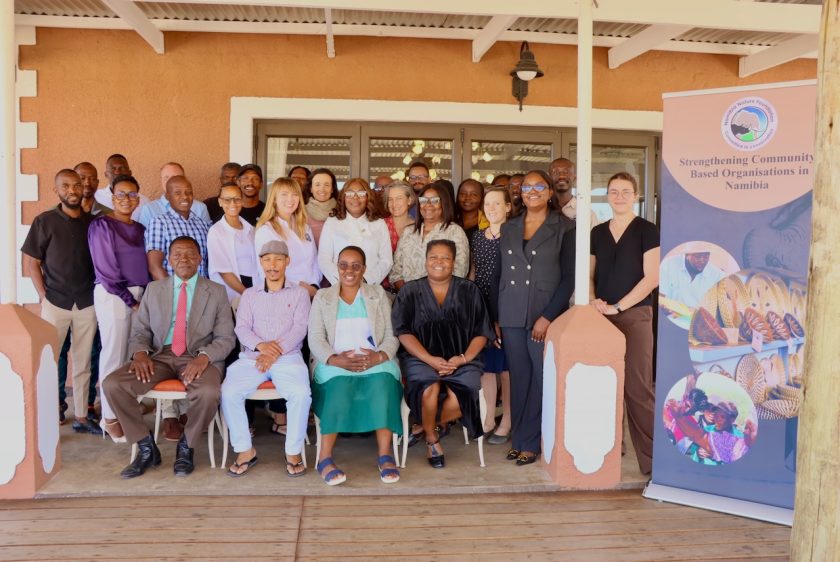
Namibia Nature Foundation Launches Community of Practice for Environmental and Social Safeguards
Yesterday marked the official launch of Environmental and Social Safeguards (ESS) Connect, a national Community of Practice (CoP) designed to promote inclusive, rights-based approaches across Namibia’s conservation and development sectors.
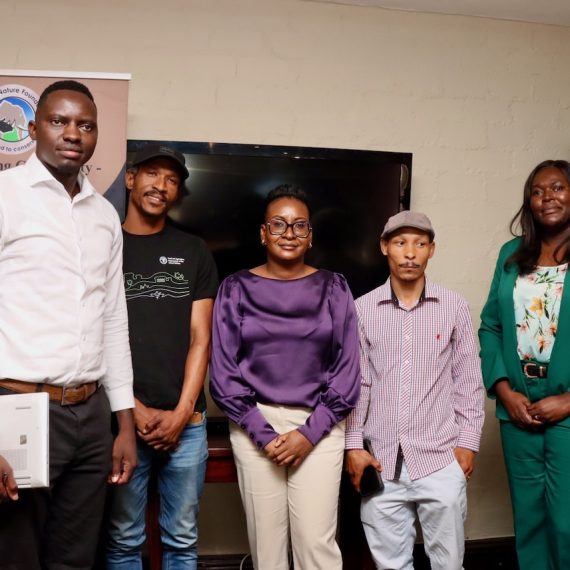
Hosted in Windhoek, the event convened a diverse group of stakeholders from government, the financial sector, civil society, and community-based organisations, reflecting the multi-sectoral commitment required to embed ESS principles into project design, implementation, and long-term policy.
The CoP aims to create a shared national platform where practitioners and policymakers can co-develop tools, share best practices, and strengthen capacities related to ESS. It supports the integration of Free, Prior and Informed Consent (FPIC), gender-responsive approaches, and transparent grievance redress mechanisms, ensuring that local communities, especially marginalised groups, are not only consulted, but meaningfully included throughout project lifecycles.
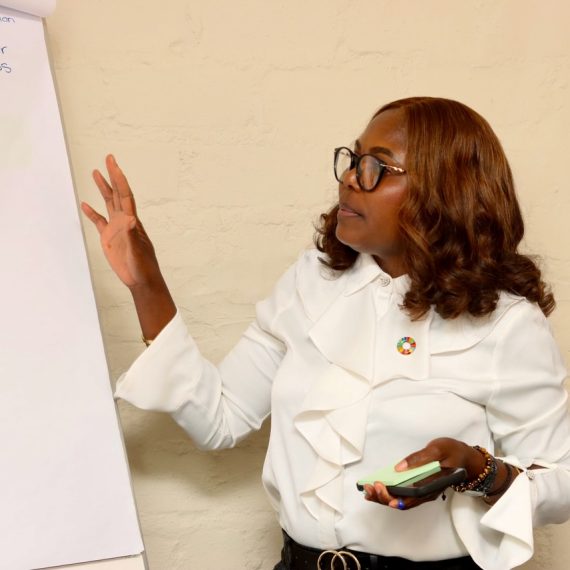
Dr. Caroline Garus-Oas, Deputy Environmental Commissioner, officially opened the ceremony by welcoming representatives from government, civil society, communities, and the private sector, calling the launch a milestone for Namibia. “As new investments in mining, green hydrogen, infrastructure, agriculture, and tourism emerge, safeguards must serve as foundations, not checklists, for protecting people, biodiversity, and cultural heritage,” she said. “The ESS Community of Practice offers a home-grown solution to address uneven safeguard implementation, limited FPIC understanding, and gaps in coordination, gender, and social inclusion. Safeguards build trust, promote resilience, and ensure development is green, inclusive, and fair, leaving no one behind.” A panel discussion followed, highlighting the need for continuous stakeholder engagement, accessible communication, and shared accountability in all stages of development. The discussion focused on the intersection of finance, development, and safeguarding, emphasising that accountability and stakeholder engagement are not one-time activities, but critical processes that must persist across all stages of project planning and execution. It was consistently noted that communities must understand, not just be informed about, what is being proposed, reinforcing the need for accessible, respectful, and participatory dialogue.
A key outcome of the ESS COP launch was the establishment of four Thematic Working Groups (TWGs), each aligned with global best practices, particularly the World Bank Environmental and Social Framework (ESS1–ESS10). The TWGs will play a central role in translating international safeguard principles into practical, context-responsive guidance, informed by Namibia’s development realities and the lived experiences of its communities. Their primary function is to co-develop tools, learning resources, case studies, and policy recommendations that reflect both global standards and local needs.
The four TWGs are:
- TWG 1: Inclusive Conservation – Social Inclusion, Gender, and Indigenous Rights: Focused on social inclusion, gender equity, and Indigenous rights, this group will address barriers to meaningful participation in natural resource governance and ensure alignment with ESS5 (Land Acquisition and Resettlement), ESS7 (Indigenous Peoples), and ESS8 (Cultural Heritage).
- TWG 2: Environmental Risk, Climate, and Development Trade-Offs: This group will explore how to balance biodiversity conservation with emerging infrastructure, agriculture, and energy investments. Emphasis will be placed on integrated risk assessment, climate resilience, and sustainable development strategies aligned with ESS1, ESS3, and ESS6.
- TWG 3: People at the Frontline – Labour, Safety, and Community Protection: With a focus on labour conditions, health, and safety of conservation staff, frontline workers, and community rangers, this TWG will develop safeguards aligned with ESS2 (Labour and Working Conditions) and ESS4 (Community Health and Safety).
- TWG 4: Stakeholder Engagement and Social Inclusion: This TWG will support effective, inclusive stakeholder processes across the full project lifecycle. It will promote meaningful consultation, FPIC where relevant, and robust grievance redress mechanisms, as outlined in ESS10.
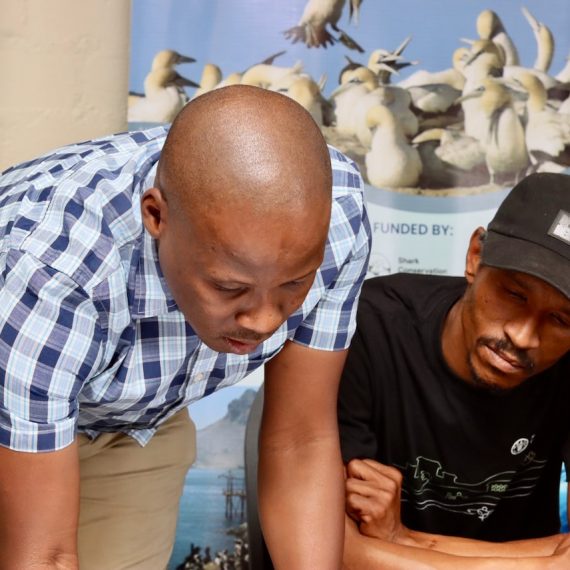
TWGs are designed as peer-led, voluntary knowledge platforms, supported by rotating facilitators and a central knowledge repository. Their work will produce locally contextualised guidance, tools, and training materials while ensuring alignment with international frameworks like the World Bank ESF, IFC Performance Standards, and the Green Climate Fund’s ESS policies. By translating global standards into practical, Namibia-specific approaches, the TWGs will ensure that safeguard principles move beyond compliance, anchoring accountability, inclusion, and continuous engagement throughout the project lifecycle.
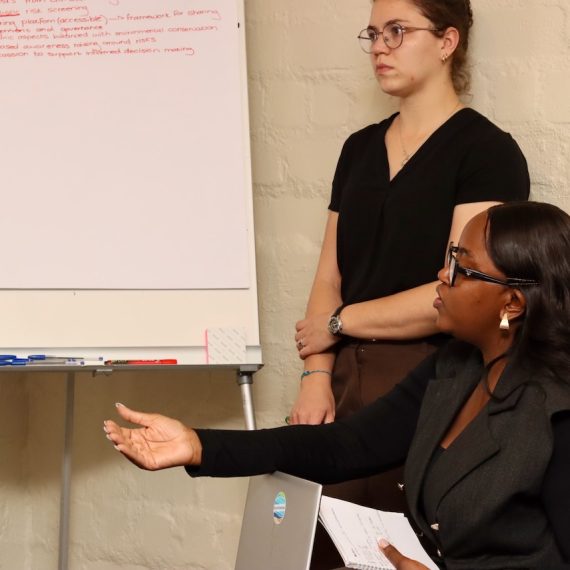
ESS CoP aspires to transform safeguards from a compliance obligation into a culture of accountability, equity, and impact. By prioritising peer learning, cross-sector collaboration, and continuous engagement, the platform positions Namibia as a regional leader in sustainable, inclusive development. As the CoP evolves, its member-led structure will ensure it remains adaptive to Namibia’s shifting environmental, social, and economic landscape, anchored in community realities and national ambition.



